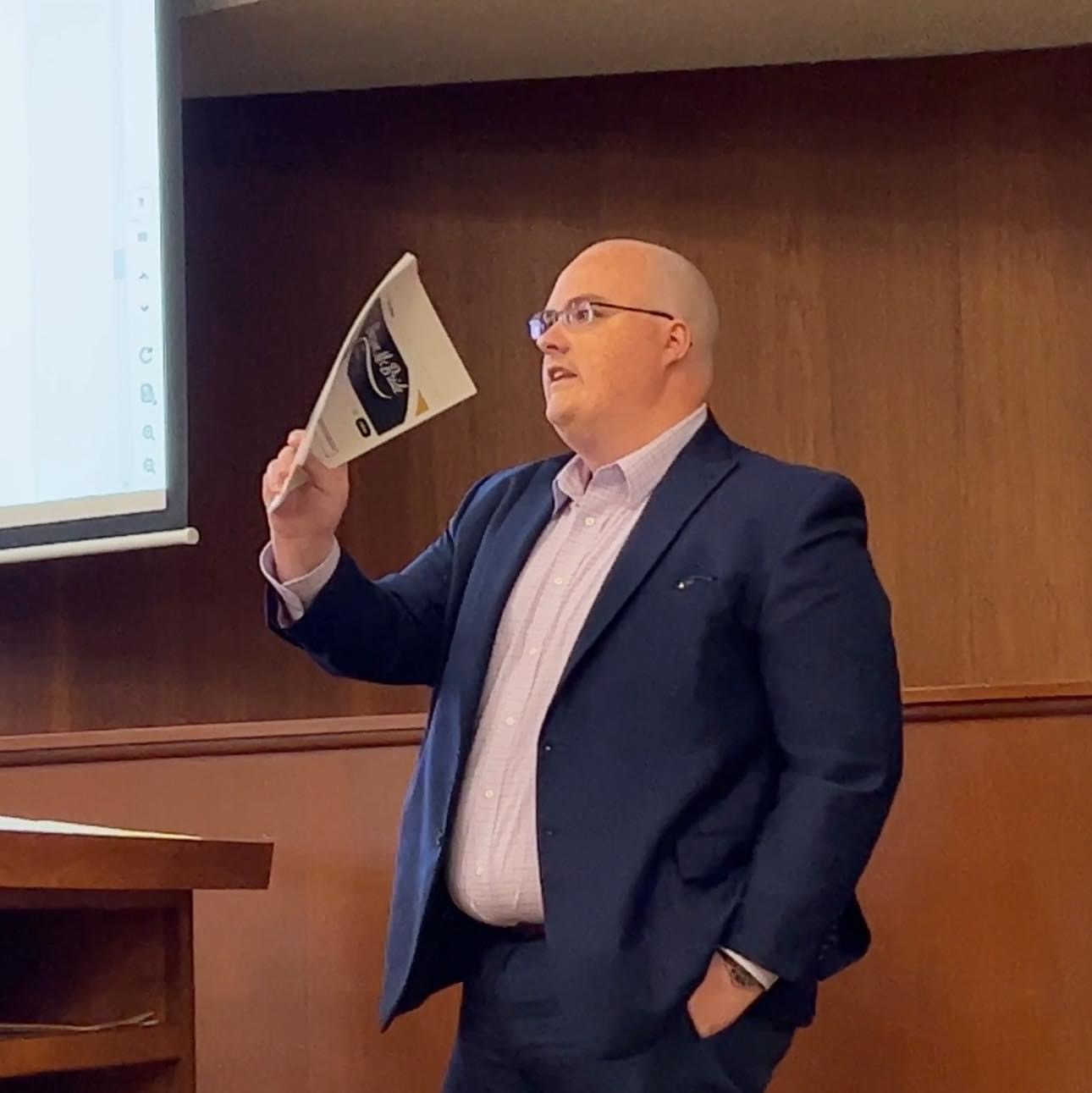Understanding the South Bend Police Tapes Case (And An Admission That Tim Corbett Is Not On The Cassettes)
- Logan Foster
- Mar 17, 2025
- 4 min read

Understanding the South Bend Police Tapes Case
(And An Admission That Tim Corbett Is Not On The Cassettes)
Date: 03/17/25
Author: Logan Foster
Introduction To The Case
The South Bend Police Tapes case, a story spanning over 13 years, continues to mire controversy and speculation, especially as it edges toward resolution. With a bench trial scheduled for June 2025, this feels like the perfect time to clarify some persistent misinformation and provide a basic understanding of this case.
At the center of this long-running dispute are five audio cassette tapes, commonly referred to as the "Tapes.” These recordings of year 2011 conversations within the South Bend Police Department have been under scrutiny since their existence came to light. The tapes are shrouded in questions of legality under federal and Indiana wiretap laws, as well as ethical debates over
privacy and transparency.
One of the most enduring rumors surrounding the tapes, however, is unfounded. Contrary to popular belief, former Metro Homicide Commander Tim Corbett is not on these tapes. Court documents and testimony have confirmed this fact (something we will show you later on.) But who is on the tapes? Why do they remain controversial? And how did this case escalate into a legal battle lasting over a decade? Here's everything you need to know as you follow the ongoing news coverage.
What Are the South Bend Police Tapes?
The "Police Tapes" refer to five audio cassette recordings comprising eight conversations between various individuals, primarily SBPD officer's and other personnel in 2011. There is even reference to the possibility of a prosecuting attorney being caught in the crossfire of "the tapes." These tapes were created under the directive of late South Bend Police Chief, Darryl Boykins.
Karen DePaepe, who was the Director of Communications for the South Bend Police Department, played a central role in the discovery of these recordings. As part of her duties overseeing the department’s communication systems, DePaepe identified and reported the recordings during a routine check of the system in late 2011. DePaepe alleged that some of the conversations raised significant concerns about inappropriate or illegal conduct within the police department, prompting her to report her findings to Chief Boykins. Chief Boykins instructed DePaupe to compile the relevant recordings onto cassette tapes and deliver them to him.
**It is important to note, according to courtroom testimony, there were no internal affairs investigations against anyone on the cassettes. Chief Boykins and DePaepe lost their jobs over their roles in the alleged illegal wiretapping of police officers.
Why Are the Tapes Controversial?
The controversy surrounding the South Bend Police Tapes stems from the lack of consent involved in their creation. The Federal Wiretap Act and the Indiana State Wiretap Act strictly prohibit recording private conversations without proper authorization (ie: one party consents, needing to obtain a warrant, etc...).
The key point of contention is whether some individuals’ phone lines were recorded without their knowledge or permission. Court documents show that Brian Young, a former South Bend police officer, is the only individual publicly identified as being recorded on the tapes. Young has stated that he did not consent to having his conversations recorded, which he argued constitutes a violation of his privacy rights under wiretap laws.
Who Was Recorded on the Police Tapes?
According to court testimony, the individuals recorded over the 9 conversations encompassing the tapes include several South Bend police officers, those unknown, and potentially an unnamed prosecuting attorney. Their identities have not been disclosed, apart from Brian Young.
Karen DePaepe, who compiled the tapes, testified that she was able to identify all the voices in the recordings. She further noted that the recordings included sensitive conversations, contributing to the complexity and controversy of the case.
It is important to note that the court has continuously grappled with whether releasing the tapes would violate wiretap protections for those recorded or serve the public interest by exposing allegedly inappropriate conduct.
Who Was Not Recorded on the Police Tapes?
For years, rumors circulated that other prominent individuals within the South Bend Police Department, including former Metro Homicide Commander Tim Corbett, were recorded in the conversations. However, Karen DePaepe’s sworn testimony under cross-examination categorically disproved this claim.
When asked directly during court testimony on May 3, 2021, DePaepe stated the following:
Q: “Tim Corbett was not on any of the cassette recordings, correct?”
A: “That’s correct.”
Q: “The individuals you have identified, Mr. Taylor, Mr. Hanley, and Mr. Scott, those individuals were not on any of the cassette recordings, correct?”
A: “That’s correct.”
Q: “Officer Richmond was not on any of the cassette recordings, correct?”
A: “That’s correct.”

Interestingly enough, it was the attorneys representing South Bend who asked DePaepe to testify and asked her who was not on the tapes. South Bend's attorney had DePaepe testify that Taylor, Hanley, nor Scott were on the recordings. The cross examination also asked DePaepe about the three individuals, but also included Tim Corbett and Officer Richmond.
Closing Thoughts
As the South Bend Police Tapes case moves toward its scheduled bench trial in June 2025, it remains a complex legal and ethical matter. The controversy surrounding the recordings, the ongoing debates over wiretap laws, and the unknown individuals implicated, have all contributed to a decade-long saga reverberating through the community. While clarity is emerging on certain aspects, such as Tim Corbett's absence from the tapes, many questions remain unanswered and may never be answered. The legal proceedings ahead may finally resolve the intricate issues at play, offering closure for those connected to the case and further defining the balance between transparency and privacy in institutional practices.
© 2025 Redress South Bend – All Rights Reserved.
Use of any or all of this article must be credited and linked to Redress South Bend.

















